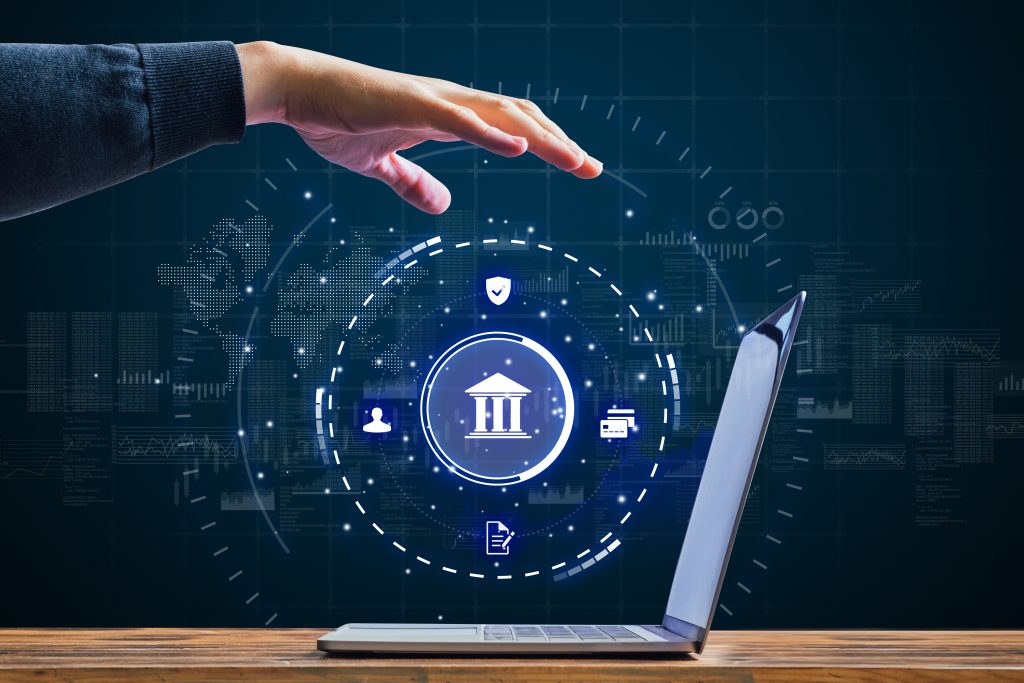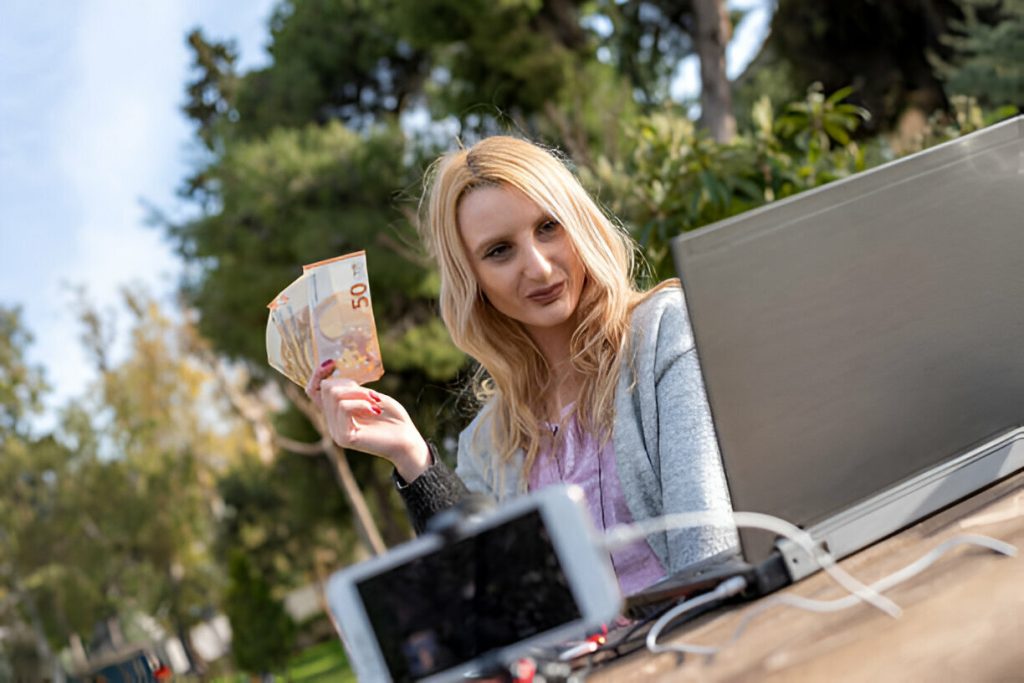Well, get ready to be amazed as we uncover the fascinating ways in which blockchain is being utilized in the public sector. From revolutionizing e-government services to enhancing identity management, blockchain offers a myriad of benefits that are transforming the way governments operate. But that’s not all – there’s so much more to explore, including blockchain’s impact on government financial management, grant disbursements, and even e-voting systems. So, get ready to embark on a journey into the world of blockchain in government, where transparency, security, and efficiency reign supreme.
Blockchain in E-Government Services
Blockchain technology revolutionizes e-government services by providing a secure and transparent platform for efficient and corruption-free transactions. With its decentralized record keeping and smart contract automation, blockchain ensures transparency and reduces the risk of corruption in government transactions. The use of blockchain technology in e-government services promotes citizen engagement and trust by providing a platform where transactions can be easily tracked and verified.
One key benefit of blockchain technology in e-government services is its transparency. Blockchain’s distributed ledger system allows for the recording and storing of transactions in a transparent manner. This means that every transaction is visible to all participants, ensuring accountability and preventing fraudulent activities. Additionally, blockchain’s immutability ensures that once a transaction is recorded, it cannot be altered or tampered with, further enhancing transparency and trust.
Moreover, blockchain technology enables the automation of smart contracts in e-government services. Smart contracts are self-executing contracts with predefined conditions. By using blockchain, these contracts can be automatically executed without the need for intermediaries, reducing administrative costs and increasing efficiency.
Blockchain for Identity Management
With its ability to ensure transparency and trust in e-government services, blockchain technology is now being explored for its potential in revolutionizing identity management. Blockchain for identity management can be applied in various sectors such as digital credentials, border control, social welfare, government procurement, and healthcare data sharing.
In terms of digital credentials, blockchain can provide a secure and decentralized platform for storing and verifying important documents and qualifications. This eliminates the need for individuals to rely on centralized authorities and reduces the risk of fraud or manipulation.
In border control, blockchain can enhance the efficiency and security of identity verification processes. By storing identity information on a distributed ledger, border authorities can quickly and accurately verify the authenticity of travel documents, reducing the potential for identity theft and illegal entry.
Blockchain can also be utilized in social welfare programs to ensure fair and transparent distribution of benefits. By recording and tracking transactions on a blockchain, government agencies can prevent fraud and ensure that aid reaches the intended recipients.
In government procurement, blockchain can improve transparency and accountability by recording all transactions and contract details on an immutable ledger. This reduces the risk of corruption and increases trust in the procurement process.
Furthermore, blockchain technology can facilitate secure and efficient sharing of healthcare data among different healthcare providers. By using blockchain, patients can have more control over their medical records while ensuring privacy and data security.
Blockchain in Government Financial Management
Government financial management can be enhanced through the implementation of blockchain technology. Blockchain offers several benefits in this area, including improved auditing, budgeting, transparency, efficiency, and accountability. With blockchain auditing, government transactions can be securely recorded and verified on the blockchain, ensuring an accurate and tamper-proof audit trail. Blockchain budgeting allows for more efficient allocation of funds, as the technology enables real-time tracking of expenditures and revenue. The transparency provided by blockchain ensures that all financial transactions are visible and accessible to relevant stakeholders, promoting trust and accountability. Furthermore, blockchain improves efficiency by automating processes and reducing the need for intermediaries. This streamlines financial management operations and reduces costs. Blockchain also enhances accountability by providing a permanent and immutable record of financial transactions, making it easier to track and trace funds. Overall, the implementation of blockchain technology in government financial management can lead to greater accuracy, transparency, efficiency, and accountability in the management of public funds.
Blockchain for Grant Disbursements
How can blockchain technology revolutionize the process of grant disbursements in the public sector? Blockchain has the potential to bring transparency, accountability, efficiency, fraud prevention, and direct allocation to the grant disbursement process. By leveraging blockchain for transparency, the public sector can ensure that every transaction is recorded on an immutable ledger, allowing for easy auditability and eliminating the possibility of tampering. This technology also enhances accountability by providing a clear and transparent trail of funds, making it easier to track the flow of money. Moreover, blockchain improves efficiency by automating the disbursement process, reducing the need for manual intervention and paperwork. Additionally, blockchain’s decentralized nature and cryptographic security measures make it highly resistant to fraud, ensuring that funds are allocated to the intended recipients. Lastly, blockchain enables direct allocation of grants, eliminating the need for intermediaries and reducing administrative costs. By embracing blockchain for grant disbursements, the public sector can streamline the process, reduce overhead costs, and enhance the overall effectiveness of grant programs.
Blockchain Adoption in Different Countries
Blockchain adoption in different countries has been steadily increasing as governments recognize the potential benefits of this technology. Here are some examples of how blockchain is being adopted in various sectors across the globe:
- Blockchain in Healthcare: Several countries are exploring the use of blockchain in healthcare to improve data management, enhance patient privacy, and streamline processes. Blockchain can securely store and share medical records, enable secure sharing of sensitive health data, and facilitate efficient management of pharmaceutical supply chains.
- Blockchain in e-Voting: Some countries are leveraging blockchain technology to create secure and transparent digital voting systems. By recording voting data on the blockchain, governments can ensure the integrity of the voting process, prevent voter fraud, and enable faster and more accurate results.
- Blockchain in e-Identities: Governments are using blockchain to develop decentralized identity systems. Blockchain-based digital identities provide a secure and tamper-proof way to authenticate individuals and manage their personal information. This approach eliminates the need for centralized identity providers and enhances data privacy and security.
- Blockchain in Supply Chain: Many countries are implementing blockchain in supply chain management to enhance transparency, traceability, and efficiency. By recording every transaction on the blockchain, governments can track the movement of goods, verify product authenticity, and tackle issues like counterfeiting and supply chain fraud.
These are just a few examples of how different countries are adopting blockchain technology in various sectors. As governments continue to explore the potential of blockchain, we can expect to see further innovation and implementation in areas such as land registry, financial management, and more.
Limitations and Challenges of Blockchain in the Public Sector
Despite its potential benefits, blockchain technology in the public sector faces several limitations and challenges. One major challenge is scalability. As blockchain networks grow in size and complexity, they can experience performance issues, such as slow transaction processing and high energy consumption. Another challenge is the lack of well-defined regulatory frameworks. Governments need to establish clear guidelines and regulations for blockchain implementation to ensure compliance and protect consumers. Additionally, securing buy-in from public officials can be difficult. Many people still associate blockchain with cryptocurrencies like Bitcoin, making it challenging to separate the technology from its digital currency origins. Furthermore, testing vulnerabilities is crucial before real-world implementation. Blockchain systems must undergo rigorous testing to identify and address any vulnerabilities that could be exploited by malicious actors. Lastly, data duplication reduction is a key consideration. Governments often deal with massive databases and data duplication across multiple departments and agencies. Blockchain technology can help reduce the need for separate storage and streamline data management processes. Despite these challenges, blockchain technology holds great promise for the public sector and efforts are underway to overcome these limitations.
Specific Applications of Blockchain in Government
One of the specific applications of blockchain in government is the use of this technology in government healthcare systems. Blockchain technology in healthcare has several benefits, including the elimination of healthcare data breaches, improved management of personal health records, enhanced point-of-care genomics management, and better management of electronic medical records (EMR) data.
- Blockchain technology in government e-voting offers a secure and convenient digital voting system, where e-voting machines record data on the blockchain, ensuring high security and preventing voter fraud. Results can be produced in minutes with zero margins for error, making blockchain-based voting superior to traditional and mail-in ballots.
- Blockchain technology in government for e-identities provides a decentralized identity (DID) approach that eliminates security issues in traditional identity systems. Users can create and manage their own digital identities using cryptography, ensuring authentication and encryption. Digital identities store verified credentials without revealing sensitive information, eliminating the need for a single profile provider and excessive documentation.
- Blockchain technology in government procurement offers transparent and secure transactions, reducing corruption and increasing efficiency. Smart contracts enable automatic execution based on preset conditions, streamlining the procurement process and minimizing the need for intermediaries.
- Blockchain technology in public service delivery improves transparency, accountability, and efficiency. It enables secure and auditable record-keeping, simplifies access to public information, and ensures funds are allocated directly to intended recipients.
These are just a few examples of how blockchain technology can be applied in government to enhance various aspects of healthcare, voting, identities, procurement, and public service delivery.



